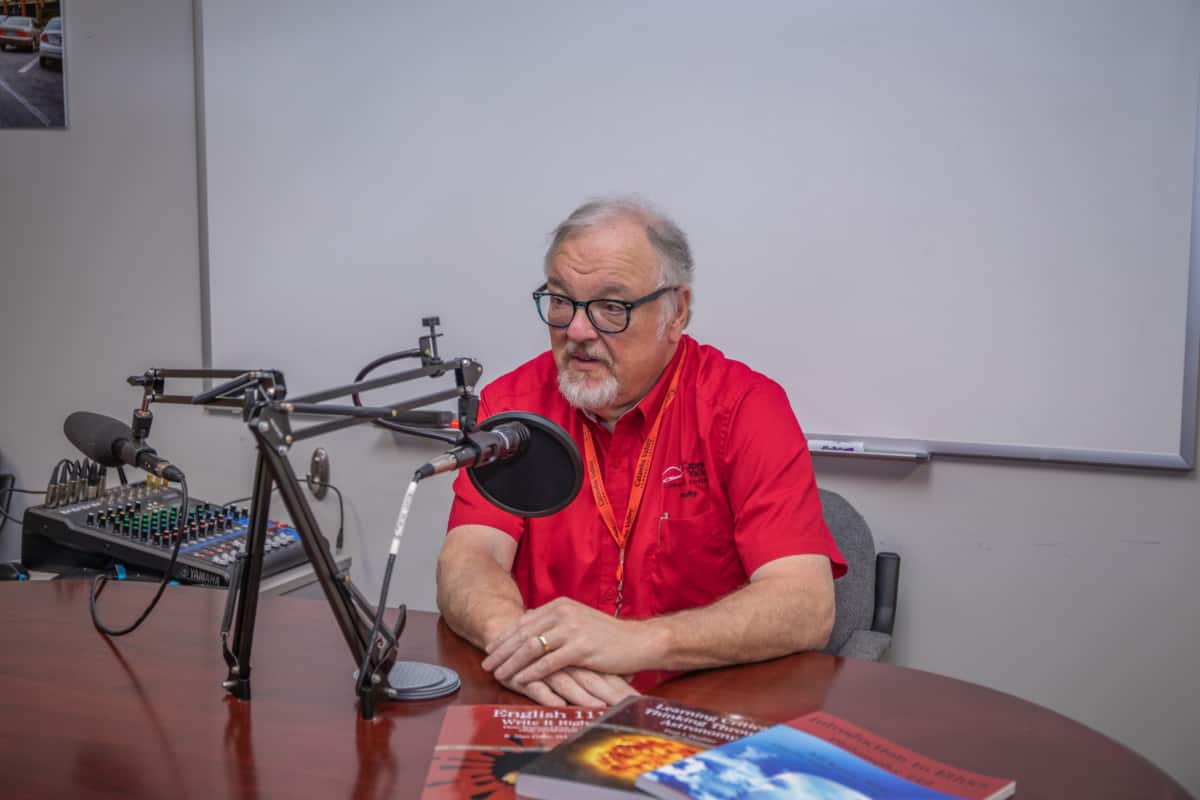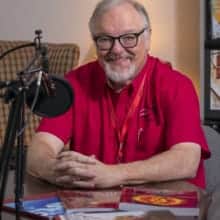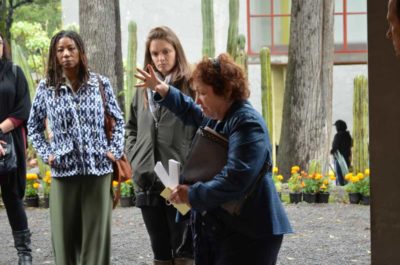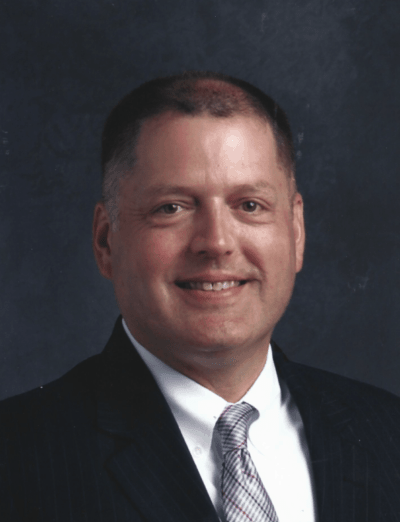I began my trip through higher education at the age of 38 in 2000, walking into Catawba Valley Community College (CVCC) with fear and confusion. Having never attended college (I’d started a successful business right out of high school), I had no idea how registration worked or even what I wanted to do. I’d thought of going into banking since I’d been an expert in borrowing money and creating revenue from it. A friend in banking promised me a job in mortgage lending were I to earn a two-year business and accounting degree from CVCC.
However, while I worked my way through courses, I fell in love with education, especially the idea of teaching—the mechanics of it, the transaction. For years, I’d sold goods for money. The only difference I’d ever made was for my own immediate sphere of influence — only myself and my family. I had paid for vehicles, homes, and college for my daughter; however, the hard-working educators at CVCC sold knowledge that helped the entire community. The state of North Carolina. The United States of America. The world.
Moreover, they helped people find their “bliss,” or the thing that they are called to do. A “job” is a temporary thing, a “career” is a long-term investment, but a “vocation” is a calling from a higher being, and I suddenly found myself “called” to teaching.
I changed my course of study to education and English from business and accounting deigning that I would need a four-year bachelor’s degree instead of an associate degree. I planned to transfer to Lenoir-Rhyne College after completing my core course load at CVCC. At the time, I had no idea I was costing CVCC money in not taking the AA and graduating; NC has a vindictive law which rates a student a failure if the student doesn’t “earn” the associate degree, even if they transfer with a 3.92, as I did. That law is still in effect.
I graduated in 2003 from Lenoir-Rhyne Magna Cum Laude and immediately began work as an adjunct instructor at CVCC teaching remedial writing. All through graduate school, I taught at CVCC, save one semester in 2005 where I taught at Lenoir-Rhyne.
It was at this time I realized that CVCC was my home.
The students at CVCC were hungry for knowledge and interested in what I knew. My education was in English with adult education as its focus. I found myself able to reach students through my ability to simplify complicated ideas, putting them into examples that spoke to the student. The students I taught at Lenoir-Rhyne for that semester were different; they didn’t seem to need me. They didn’t seem to get what I offered. However, my students in the community college needed not only what I was teaching, but also how I taught it.
After I graduated from graduate school at Appalachian State in May 2006, it was a year before a full-time position opened at three colleges at the same time. I applied at CVCC, Mitchell Community College, and Caldwell Community College. I interviewed at Caldwell and CVCC on the same day, an hour apart. It was a scary and exhausting week.
A few days later, I received an offer from each college.
CVCC’s offer was less money, but it’s closer to my home, and even better, it was my first initiation to higher education. I still thought of the myriad of remedial students who I’d taught and worked with during my grad school work. I saw many of them in the community, graduated and working, doing those things that CVCC had emboldened them to do. The institution had given them confidence and told them they are smart and able, some of them hearing it the first time in their lives. Even 40-plus year old folks like myself suddenly realized that they were able to be something more than what they’d done before. NAFTA put a lot of people out of work. These folks needed support past that of education; they needed their confidence and self-worth built up.
Even today, CVCC operates as an institution caring for every aspect of its student. Like it helped me decide on what to do with the rest of my life after a career in business, CVCC continues to nurture the best in its stakeholders and gives them every opportunity to succeed. Moreover, they do it with only eight cents of the education dollar while state universities receive three times that. The NC Community College System serves more than 750,000 students each year compared to just over 200,000 for the state universities.
I’ve been so fortunate in the past year to work on a presidential initiative to publish faculty-authored course workbooks to support students in course retention and completion. Redhawk Publications (named after the college’s sports teams) offers me the opportunity after a decade of full-time teaching to apply my ability to demystify complex ideas and pass them to more students than ever possible — even to other colleges who may order and sell our textbooks.
Only CVCC would support this kind of program because that’s what CVCC does: it brings out the best in its students and its faculty and staff. From its excellent maintenance department to the deans, vice-presidents, and CVCC’s President Dr. Garrett D. Hinshaw, Catawba Valley Community College saves people and creates opportunity for everyone who enters the door.
I am very proud to be a part of that. For two years from 2000 to 2002, CVCC helped me find my bliss. Since then, I have worked hard to make my employer proud, help my students, and build a vocation that enriches everyone I encounter, and in doing so, creates a better world for myself and my family.





